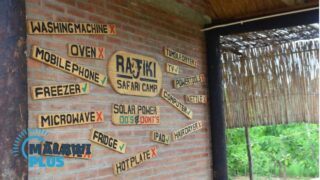Biogas Sustainable Energy in Malawi
About Biogas Sustanable Energy in Malawi
Founded by Clement Kandodo, EcoGen Limited Malawi is a multi-award-winning business that was established in 2021 to provide technically advanced and sustainable biogas solutions for the production of renewable biogas energy and fertilizer to small farmers to reduce food shortage, poverty, and climate change.
EcoGen promotes a world where waste is resource and farmers are empowered and productive.
They design, produce, distribute, sell and install small and medium biogas systems to convert agricultural waste into a sustainable source of fuel and fertilizer for Malawi’s farming-dependent rural households.
Its mission is to provide rural populations with safe, affordable, and efficient cooking and heating fuels.
80% of Malawians depend on farming to earn a living, yet over half of the country’s 18.6 million people live below the poverty line.
Hence, the company’s bigger goal is to combat food insecurity, poverty, and climate change.
Kandodo observes that the agriculture sector is highly vulnerable to external shocks, particularly climate change.
Although it is difficult to have the desired impact, government is still trying to boost agriculture, through the affordable inputs subsidy program, and other programs.
Rural Malawian’s dependence on charcoal and firewood has contributed to declining forest cover.
In biogas, there is an opportunity to bring better technologies that would be of greater benefit to farmers, including supporting climate adaptation.
Biogas is a colourless combustible gas that is produced by the biological breakdown of organic matter; occurring in the absence of oxygen.
The biogas comes from ‘biogenic materials’ and it is generated from biodegradable materials such as biomass, cow dung green waste, and agricultural residue such as cassava, sugar cane, etc.
Biogas comprises a mixture of different gases, mainly methane, carbon dioxide and other gases, including hydrogen.
The gas is produced by bacteria that occur during the bio-degradation of organic materials under anaerobic conditions.
Biogas has an elevated methane content which makes it an attractive source of energy.

Sistema
This system is used in the production of biogas and fertilizer.
Initially, five bags of cow dung are fed into the bag that is placed in a 90cm deep pit, where it is exposed to sunlight.
The bag is located not more than 30 metres away from the point of use, as it is a low-pressure gas.
After two to six weeks, daily feeding of 25-30 litres of food waste or 45-60 litres of animal dung is recommended, depending on the size of the system.
The animal dung or food waste is mixed with water before feeding the bag.
The digestion process yields biogas and liquid fertilizer, known as Brown Gold, which can be used to fertilize plants and treat the roots of plants.
The fertilizer can also be diluted with water before application and also mixed with animal feed to help animals grow healthy.
Furthermore, it can be combined with other substances to produce pesticides.
On average, the system can produce up to 100 litres of fertilizer every day.
The gas used for cooking and heating consists of water, hydrogen sulphur, carbon dioxide, and methane.
To prevent water accumulation in the pipes, the pipes are lifted to send the water back into the system.
A pressure relief valve is used to reduce pressure when the gas has filled the bag.
To ensure safety, the system has a desulphurizer or filter with mesh wire inside that needs to be changed twice a month.
After filtering, the gas is piped to the kitchen or point of use, where a valve can be opened or closed to regulate the flow of gas to the cooler and the pressure of the gas.
To ensure maximum safety, EcoGen provides comprehensive precautionary measures to users and conducts regular customer engagements to ensure their safety and satisfaction.
EcoGen also encourages users to actively participate in their safety initiatives and regularly evaluates their safety protocols.
Benefits
Eco-friendly
Biogas is a renewable and clean source of energy.
The gas that is produced through bio digestion does not pollute the atmosphere.
It actually minimizes greenhouse emissions.
Left in nature, the methane emitted by human and animal waste is a potent polluter-each molecule has 20 times the greenhouse gas potential of Carbon Dioxide.
Converting that gas into fuel for clean-burning stoves means less methane is released into the atmosphere.
Healthy Cooking
In contrast to traditional wood fires, biogas burns a smoke-free flame.
This prevents families from being exposed to smoke in the kitchen.
This helps to prevent dangerous respiratory diseases.
Globally, smoke-related diseases kill 4 million people annually-more than AIDS, malaria, or tuberculosis.
Waste Management
Biogas systems create methane cooking gas from the breakdown of animal, agricultural and human waste.
When these natural by-products are collected and recycled, less waste runs off into local waterways, resulting in improved waste management.







